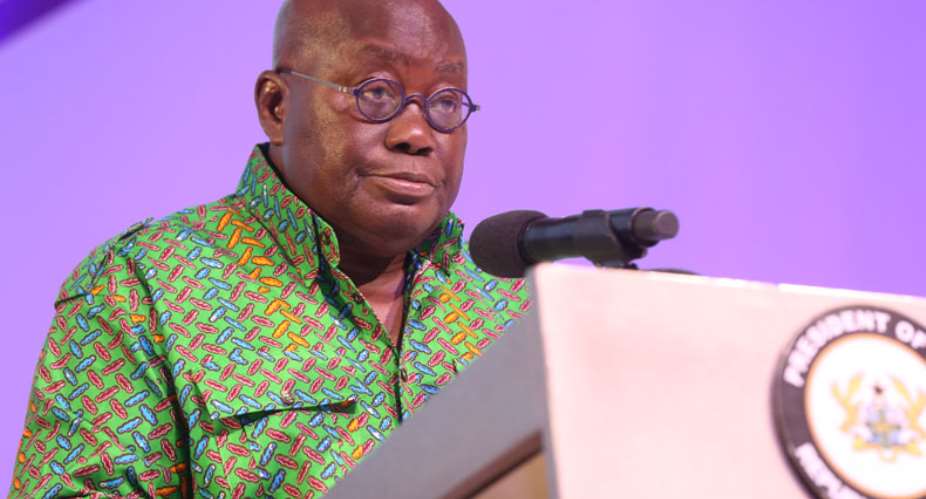The Ghana Center for Democratic Development (CDD-Ghana) has asked the New Patriotic Party (NPP) administration to desist from politicizing the flagship Infrastructure for Poverty Eradication Programme (IPEP) which it initiated.
The policy think tank noted that politicizing the programme that would ensure the allocation of $1 million to each of the 275 constituencies annually for infrastructure development could undermine transparency and accountability at the regional and district levels.
This formed part of policy recommendations contained in the maiden report of the IPEP tracker project being undertaken by CDD.
According to the report, the implementation of IPEP has started creating tension between key bureaucrats and politicians at the regional and district levels due to lack of coordination.
Party supporters see IPEP as reward for their hard work and therefore controlling the process will ensure material dividends.
“It is not clear if these actions are borne out of deliberate policy, expediency or implementation choices. This will not bode well for the success of IPEP,” the report stated.
Awal Mohammed, Research Officer and Team leader for IPEP tracker project, presenting the findings at a stakeholders' forum in Accra, said the prospect for partisan political capture of the IPEP programme, particularly at the regional and district/constituency level by political party actors and their bureaucratic supporters, is high.
“Generally, NPP party executives and political appointees at the regional and district levels appear to have deeper knowledge of the IPEP programme than any other group of stakeholders,” Mohammed noted.
He said analysis of the institutional and policy context for the implementation of IPEP and findings from its monitoring of the work of the 10-member regional ad-hoc committees showed lack of a policy framework that spells out the IPEP policy intervention.
This, he said, has the potential to create an institutionalized information asymmetry for the principal actors required to successfully implement the programme.
“There is an urgent need to ensure that the District Assemblies are not used as a political party vehicle to dispense patronage to individual party financiers, communities and organizations in a manner that distracts it from its mandate and sets it up to fail,” he noted.
Mr. Mohammed further observed that the composition of the committees was dominated by NPP party people than technocrats while majority of district/constituency level stakeholders reported that they were not aware or not much involved in the community-level stakeholder consultations undertaken by the committees.
“This strikes a sense of a disorganized and inadequate stakeholder consultation processes by the committees,” he said.
The report called for the strengthening of linkages and partnership between the Development Authorities and the National Development Planning Commission (NDPC), Regional Coordinating Councils (RCCs) and the Metropolitan, Municipal and District Assemblies (MMDAs).
By Jamila Akweley Okertchiri





 Elisu By-election: "If you call yourself a man, boo Chairman Wontumi again" — Bo...
Elisu By-election: "If you call yourself a man, boo Chairman Wontumi again" — Bo...
 Fuel tanker driver escapes with his life after tanker goes up in flames near Suh...
Fuel tanker driver escapes with his life after tanker goes up in flames near Suh...
 Uniform change: ‘Blue and white are brighter colours’ — Kwasi Kwarteng explains ...
Uniform change: ‘Blue and white are brighter colours’ — Kwasi Kwarteng explains ...
 MoE not changing all public basic school uniforms but only newly built ones — Kw...
MoE not changing all public basic school uniforms but only newly built ones — Kw...
 We’re only painting new public basic schools blue and white – Dr. Adutwum clarif...
We’re only painting new public basic schools blue and white – Dr. Adutwum clarif...
 Bawumia has lost confidence in his own govt’s economic credentials – Beatrice An...
Bawumia has lost confidence in his own govt’s economic credentials – Beatrice An...
 I fought WW2 at age 16 – WO1 Hammond shares At Memoir Launch
I fought WW2 at age 16 – WO1 Hammond shares At Memoir Launch
 GRA-SML deal: Regardless of what benefits have been accrued, the contract was aw...
GRA-SML deal: Regardless of what benefits have been accrued, the contract was aw...
 April 26: Cedi sells at GHS13.75 to $1, GHS13.18 on BoG interbank
April 26: Cedi sells at GHS13.75 to $1, GHS13.18 on BoG interbank
 Champion, promote the interest of women if you become Vice President – Prof. Gya...
Champion, promote the interest of women if you become Vice President – Prof. Gya...
